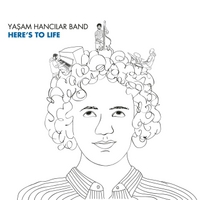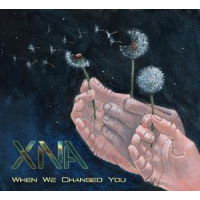Home » Jazz Articles » Extended Analysis » Miroslav Vitous Group: Miroslav Vitous Group
Miroslav Vitous Group: Miroslav Vitous Group
First Meeting was a momentous album for the Weather Report co-founder, who left the fusion supergroup in 1973, as his two post-WR recordings for other labels were largely unfocused affairs that tried to be exactly what Vitous was not: a jazz-rock/fusion bassist—and, in particular, a credible electric bassist. That all changed with Rypdal Vitous DeJohnette (ECM, 1979), the bassist's ECM debut and the first of two exceptional collaborations with Norwegian guitarist Terje Rypdal and American drummer Jack DeJohnette. Vitous' writing had evolved significantly in the decade since his particularly fine contributions to Weather Report's eponymous 1971 Columbia Records debut; between his compositional acumen and his pliant, lyrically charged double bass playing, it seemed only a matter of time before ECM would invite the bassist to record for the label under his own name.
First Meeting was, indeed, the first of three recordings to feature a lineup that, with the exception of the piano chair, remained constant throughout: British saxophonist/bass clarinetist John Surman, already a fledgling ECMer, was joined by Norway's Jon Christensen—one of ECM's two drummers of choice (DeJohnette was the other)—while American pianist Kenny Kirkland proved the biggest surprise of the quartet's first two recordings, ultimately replaced by England's John Taylor for Journey's End. Kirkland was, in fact, the group's real wildcard; collaborating with Vitous for the first time on the Japanese-only Guardian Angels (Trio Records, 1978)—the better of Vitous' post-WR solo records—First Meeting revealed an unexpectedly versatile pianist who would ultimately become much in demand with everyone from Branford Marsalis to Sting until his untimely passing in 1998 at the age of 43. First Meeting was undeniably the first album to demonstrate—and deliver upon—Kirkland's tremendous potential.
While all of First Meeting was composed by Vitous, with the exception of the brief free improvisation of the title track, Miroslav Vitous Group is a far more egalitarian affair, with Surman and Kirkland each contributing a single composition (the saxophonist's circular breathing-driven "Number Six" a frenetic contrast to Kirkland's darkly pastoral, rubato tone poem "Inner Peace," reprised from Guardian Angels), along with two free improvisations ("Second Meeting" and "Interplay") that take up nearly 15 minutes of the album's nearly fifty-minute running time, and demonstrate just how much more intimate the group's language and interaction had become, 14 months after First Meeting was recorded in May, 1979.
Vitous revisits "When Face Gets Pale," first heard on his leader debut, Infinite Search (Embyro, 1970), but this time its intrinsic lyricism is front-and-center, with Vitous' singable theme setting the stage for a bar-setting first solo that's effortlessly matched by Kirkland. But it's when Surman enters on baritone saxophone, for an early album high point, that things really take off, with Christensen—clearly at the peak of his prowess during this period—creating a perfect marriage of color and pulse.
The lineup may be largely European, but Miroslav Vitous Group is also significant as a recording that perfectly exemplifies ECM's description of the entire Re:solutions series: "There was Classical Music. There was Jazz. There even was Rock. Then there was one record company that didn't care. It devoted itself to all kinds of music, as long as it was good." In exploring a multiplicity of reference points, from the neo-classical leanings of the closing "Eagle," where Vitous' warm arco blends with Surman's gently searching bass clarinet, to the dark-hued cinematics of "Sleeping Beauty" and swinging but temporally shifting "Gears," where Vitous delivers one of his most impressive pizzicato solos of the set, Miroslav Vitous Group is unequivocally a jazz record, but one whose multifarious stylistic touchstones also makes it a long overdue release that is, indeed, informed by all kinds of music. And it's good, too—exceptionally good, in fact.
Track Listing
When Face Gets Pale; Second Meeting; Number Six; Inner Peace; Interplay; Gears; Sleeping Beauty; Eagle.
Personnel
Miroslav Vitous: double bass; John Surman: soprano and baritone saxophones, bass clarinet; Kenny Kirkland: piano; Jon Christensen: drums.
Album information
Title: Miroslav Vitous Group | Year Released: 2014 | Record Label: ECM Records
Tags
PREVIOUS / NEXT
Support All About Jazz
 All About Jazz has been a pillar of jazz since 1995, championing it as an art form and, more importantly, supporting the musicians who make it. Our enduring commitment has made "AAJ" one of the most culturally important websites of its kind, read by hundreds of thousands of fans, musicians and industry figures every month.
All About Jazz has been a pillar of jazz since 1995, championing it as an art form and, more importantly, supporting the musicians who make it. Our enduring commitment has made "AAJ" one of the most culturally important websites of its kind, read by hundreds of thousands of fans, musicians and industry figures every month.
























